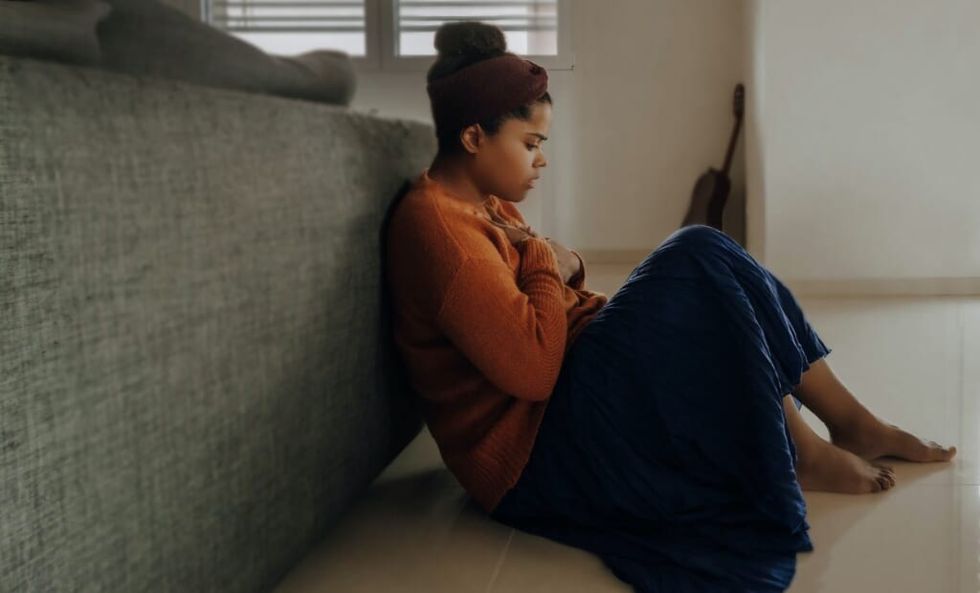Introverts and people with social anxiety are not one in the same – they can be, of course: an introvert can suffer from social anxiety. But so can an extrovert. Both introverts and those with social anxiety may avoid crowds, may opt out of social situations, and may prefer solitude much of the time, but their reasons for doing so can be quite different. An introvert may exhibit these behaviors because peace, quiet, and time spent alone makes him or her feel their best; someone with social anxiety may opt for peace, quiet, and solitude because their opposite makes him or her feel terrible.
So, what’s the situation in your case? Figuring that out will take some deep introspection.
One of the clearest ways to delineate between a tendency toward introversion and social anxiety is to think back on your emotions and concerns. Have you always felt the way you do now, tending to prefer quiet time alone even back to your childhood years, preferring one-on-one or small group interactions even from your school days? Then you are probably an introvert.
RELATED: 5 Reasons to Prioritize Physical Fitness In the Mornings
On the other hand, according to the Mayo Clinic, anxiety disorders tend to develop in the teenage years, and sometimes not even until adulthood (with exceptions, of course – some children do develop social anxiety), so if you can look back on your life and see your patterns of emotional response and concern changing and growing, that may well be a social anxiety issue. The good news is that you can likely overcome social anxiety, at least to a large degree.
Before talking about that, though, let’s take some time to define introversion and social anxiety, then we’ll talk about action steps you might want to take if it turns out you’re dealing with the latter.
What Is an Introvert?

In years past, introversion was cast in a somewhat negative light. Indeed, if you plug the word “introvert” into Google, at present the first definition reads: “a shy, reticent person.” That’s a dated and inaccurate take, though. Instead, take a look at the current Merriam-Webster Dictionary’s definition of an introvert, which reads: “a person whose personality is characterized by introversion; a typically reserved or quiet person who tends to be introspective and enjoys spending time alone.” Nothing negative there, but that’s still only a partial definition – though, to be fair, defining a major personality trait in a handful of words is a tall order.
Introverts are far from monolithic – you can’t define them using a few terms and think you have covered them as a whole. Introversion is hardly the same thing as shyness. Introverts can even be quite outgoing. Introverts are not always quiet and low key in their behavior. Introverts often greatly enjoy the company of others.
RELATED: How Dan Levy Fought through Anxiety to Change The World – One Love Story at a Time
A one thing about introverts that is universal is that an introvert enjoys solitude, whether it’s most of the time or only now and then. Introverts are comfortable with themselves and happy to be alone – in fact, they need to be alone at least on occasion. Indeed, solitude is where an introvert gets his or her most productive thinking and work done and it’s in solitude that they recharge emotionally.
What Is Social Anxiety?

Health Line has an excellent, succinct definition of social anxiety, so we’ll let them define it for us. Often classed as a disorder (social anxiety disorder) and sometimes called social phobia, it is a condition “that causes extreme fear in social settings. People with this disorder have trouble talking to people, meeting new people, and attending social gatherings. They fear being judged or scrutinized by others.”
Let’s go through the major points there in reverse order. A fear of judgement by others is actually more likely to afflict an extrovert than an introvert, the latter tending to place less weight on what other people think about them, so if you live in fear of what others will think of you, that may well be social anxiety, not a tendency toward introversion.
RELATED: The 17 Best Jobs for Introverts
Introverts can be extremely sociable, can be great conversationalists, and can find meeting new people in new places fascinating, they simply tend to prefer to engage one-on-one or in smaller groups (both of which can be done in a large gathering, mind you – the introvert may not “work the room” but may be perfectly comfortable in a busy place). So if you fear and struggle with meeting people, chatting, and even being in social settings, that is likely social anxiety, not introversion.
And finally, if being in social settings writ large is problematic for you, from the workplace to shops or restaurants to other people’s homes, that is likely an anxiety disorder, not an introverted personality trait; introverts can be quite comfortable in a variety of settings – they hardly need to hunker down at home, they just want some peace and quiet now and then, and that can come in an office with a closed door, in a quiet restaurant booth, or anywhere else.
Overcoming Social Anxiety

If you have thought through your emotional responses to socialization, the ways in which you enjoy spending time, the things you avoid, the times you are happy, the times you are stressed, and so forth, you have already taken a great first step toward mitigating the condition. We won’t say “overcoming” it, because that implies that it will ever fully go away, while a more realistic goal is reduction of the severity of the condition.
One of the simplest – not easiest, just simplest – ways to overcome social anxiety is, according to the Cleveland Clinic, to introduce yourself to the very situations you fear. Do it in small doses, starting with a coffee shop, not a rock concert, a lunch date, not a dinner party, and a trip to the park, not a visit to Disney World, e.g. This is effectively exposure therapy, and once you start forcing yourself to be exposed to social situations, in small doses, you will likely find the experience not as taxing as you expected, and you will begin to build up your comfort level with each time you venture out.
Another approach to dealing with social anxiety is to enlist some help. This can be in the form of trusted friends or family members who understand what you are dealing with and can come along with you as you venture out, creating a support for you as you navigate challenging situations. It can also mean enlisting the help of a psychologist, therapist, or other mental health professional who can help you better understand the fears you are already facing and help make a plan to confront their sources.
Finally, know that there are many medications that can also greatly reduce the effects of social anxiety disorder, according to Brightside Health, and the right medicine may do wonders for your wellbeing. Help is within reach!
KEEP READING:
Signs You’re an Introverted Extrovert: A Comprehensive Guide to This Common Personality Type
Credit: Source link



